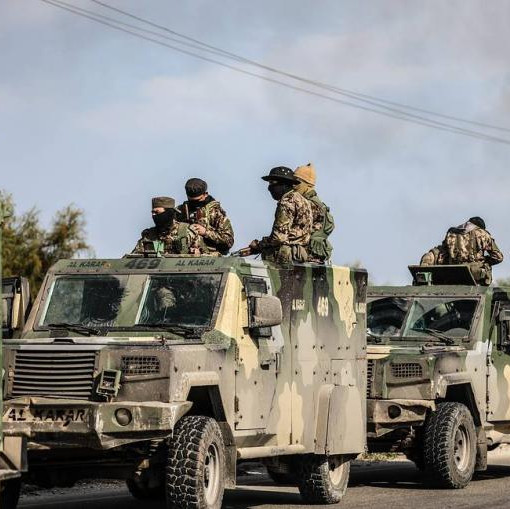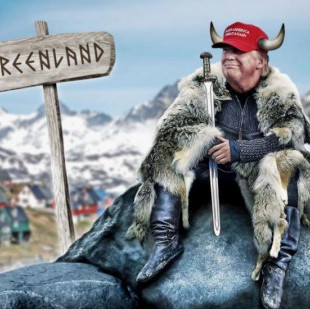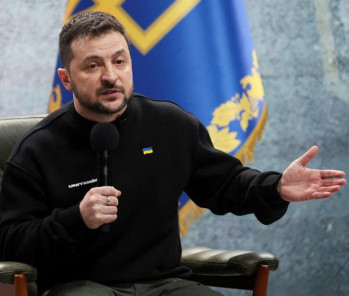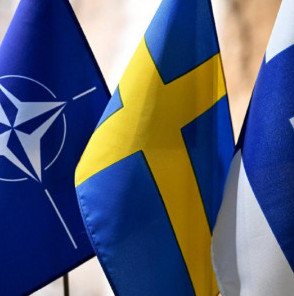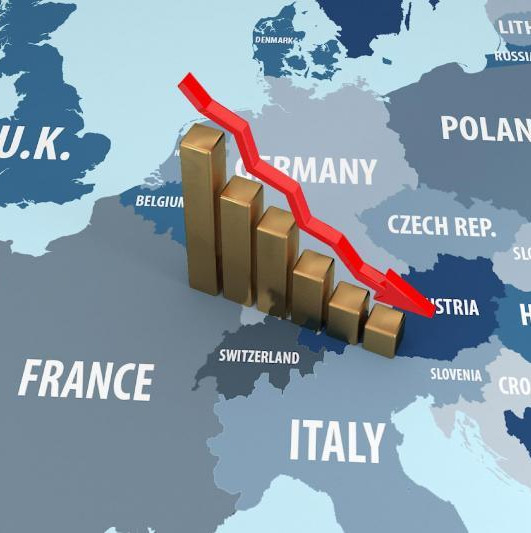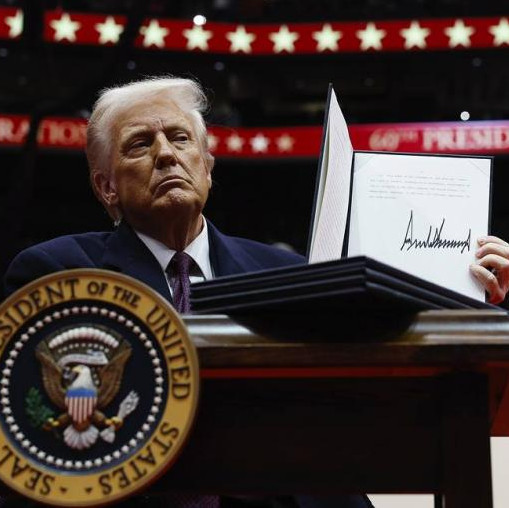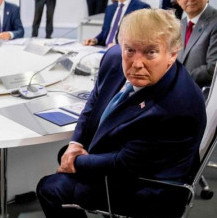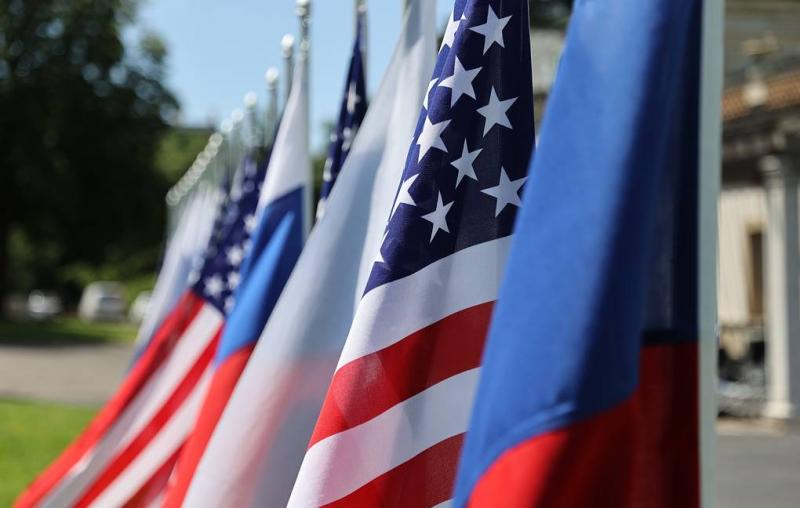
Russia and the US are preparing for further diplomatic talks; Donald Trump’s new duties on major US trade partners could trigger countermeasures; and the EU has pledged 800 bln euro for military expansion amid concerns over Russia. These stories topped Thursday’s newspaper headlines across Russia.
Izvestia: Russia, US prepare for new diplomatic talks as Black Sea initiative remains stalled
There is currently no substantive discussion regarding new negotiations between Russia and the United States on the Black Sea Initiative, Chairman of the Federation Council Committee on Foreign Affairs Grigory Karasin told Izvestia. At the same time, preparations are underway for a second round of consultations between Russian and American representatives on restoring the normal operations of the two countries’ diplomatic missions. Additionally, a meeting is expected between the head of the Russian Direct Investment Fund (RDIF), Kirill Dmitriev, and a US delegation in the United States. Despite the ongoing dialogue between Moscow and Washington through various channels, Ukrainian authorities continue to violate agreements reached in March, Russian diplomats emphasize.
"We live in a rapidly changing world, but as of now, there is no substantive discussion on this issue. However, naturally, life will dictate the course of events," Karasin told Izvestia.
European nations will closely monitor the dynamics of the Ukrainian settlement process but are unlikely to lift sanctions in the near future, a senior research fellow at the Center for Security Studies of the Russian Academy of Sciences Konstantin Blokhin told the newspaper.
"The situation is evolving beyond the traditional framework of a Russia-West confrontation, shifting instead to a scenario where each party acts in its own self-interest. If Europe perceives that sanctions continue to inflict economic harm on the European Union itself, a policy reassessment cannot be ruled out," Blokhin noted.
Experts suggest that the Trump administration could exert pressure on Brussels, leveraging US economic influence. However, an associate professor in the Department of Political Theory at MGIMO University Ivan Loshkarev pointed out that "many decisions within the European Union require unanimous approval, making the lifting of sanctions unlikely".
The Russia-US dialogue continues to suffer from a fundamental lack of mutual understanding, Loshkarev argues. He believes this discrepancy affects the broader security architecture in Europe: where Russia seeks to create shared benefits, the United States prioritizes ideological alignment, and where Moscow attempts to address issues independently, Washington perceives efforts to reinvigorate an imperial agenda.
In the early hours of April 3 Moscow time, US President Donald Trump announced the introduction of reciprocal duties on imported goods. Trump accused America’s trade partners of violating the principles of free trade and engaging in unfair practices. In particular, he criticized the trade policies of China, Canada, Mexico, and Thailand in their dealings with the United States. Experts interviewed by Vedomosti are largely skeptical about Trump’s new duty policy, warning of significant economic and diplomatic risks.
According to Trump, a uniform import duty will be applied to nations that "treat the US unfairly." This rate will amount to half of the duties those countries impose on American goods, with calculations factoring in currency manipulation. He also presented a table listing the new duty rates for various countries, for example: China - 34%, the European Union - 20%, Vietnam - 46%, Taiwan - 32%, Japan - 24%, India - 26%, South Korea - 25%, Thailand - 36%, Switzerland - 31%.
While Trump is confident in the effectiveness of these duties, this policy will yield no positive outcomes for the United States in the short-to medium-term, a senior research fellow at the Institute for US and Canadian Studies of the Russian Academy of Sciences Vladimir Vasilyev told Vedomosti. According to him, under these circumstances, the choice is not between positive and negative consequences, but between adverse and highly adverse ones.
According to Vasilyev, although China and the European Union may not impose identical retaliatory measures, their response will likely target critical sectors of American exports. "For Trump, the economy has been one of his strongest selling points in the election campaign, but this duty policy could cost him that advantage, ultimately damaging the Republican Party’s chances in the midterm elections in November 2026," he noted.
Most Americans are dissatisfied with the president’s trade wars. According to the latest joint poll conducted by CBS News and YouGov, 52% of respondents disapprove of Trump’s trade policies, while 55% believe he is overly focused on duties. Furthermore, 72% anticipate that duties will lead to higher prices in the short term, while 47% expect prices to rise in the long run.
Izvestia: EU to allocate 800 bln euro for defense as military buildup against Russia escalates
Strengthening the European Union’s defense capabilities is equivalent to reinforcing NATO’s overall defense posture - this was the rationale provided for increased military investments following the EU defense ministers’ meeting in Warsaw on April 2. The discussions centered around the so-called EU White Paper on defense, which designates Russia as a primary threat. In response to this perceived threat, EU member states have committed to investing 800 bln euro in military resources over the next four years, which also includes continued military support to Ukraine. Experts told Izvestia that Russia will expand its own military assets in proportion to the West’s efforts.
Russia cannot ignore Europe’s militarization and will proportionally expand its armed forces, head of the Center for the Study of Political and Military Conflicts Andrey Klintsevich told the newspaper. Nevertheless, he believes that a normalization of relations between Russia and Europe is unavoidable in the long run.
Regarding the 800 bln euro military budget, the majority - 650 bln euro - is expected to be contributed by EU member states, while the remaining 150 bln euro is to be allocated through loans. However, the EU has yet to finalize the framework for these loans, facing opposition from Hungary.
There is a growing split in Europe regarding the scale of militarization, particularly in light of the peace process initiated by Russia and the United States for resolving the Ukrainian conflict and restoring Russian-American relations, research fellow at the Center for International Security of the Institute of World Economy and International Relations Vasily Klimov believes.
"In this situation, Russia must act based on its own interests, identifying acceptable approaches for resolving the conflict in Ukraine while gradually re-establishing dialogue on key security issues in Europe," the expert told Izvestia.
The agreement on mineral resources with the United States must not contradict the conditions for Ukraine’s future accession to the European Union, Vladimir Zelensky declared. He announced upcoming consultations with delegations from the general staffs of European countries regarding the deployment of military forces to Ukrainian territory. Experts believe Ukraine may be using European integration demands as a pretext to avoid signing the resource deal with the US in its current form while simultaneously seeking stronger security guarantees, Nezavisimaya Gazeta writes.
The ongoing discussion over security guarantees has been further fueled by discussions about the deployment of European military forces to Ukraine. In his latest video address, Zelensky announced that on Friday, delegations from the general staffs of European countries that had expressed willingness at the March 27 "coalition of the willing" summit in Paris to station their troops in Ukraine would convene in Kiev. According to local analysts, these consultations are expected to determine the potential number, structure, and locations of foreign military units.
Stanislav Tkachenko, professor at the Department of European Studies at the Faculty of International Relations at St. Petersburg State University, expressed concerns that European soldiers would actually be deployed to Ukraine. If London and Paris were to send their forces before the conflict ends, they would become legitimate military targets for the Russian Armed Forces.
Without Washington’s active involvement, the plan is unlikely to materialize, as European nations lack sufficient military resources and personnel, he told the newspaper. "At the same time, President Donald Trump appears intent on trading what he calls ‘goodwill’ from Washington toward Ukraine in exchange for access to Ukrainian natural resources. Meanwhile, Kiev is demanding either NATO membership or a security guarantee agreement. However, Trump is unwilling to sign anything, insisting instead that the presence of American businesses in Ukraine should be considered a form of protection. Zelensky, on the other hand, does not see this as a safeguard, pointing out that Russia launched its special military operation even in regions where Western investors were present. Clearly, Ukrainian authorities had hoped to trade access to their natural resources for something more tangible," the expert noted.
"According to Ukraine’s Constitution, no government has the authority to transfer the country’s mineral resources to a foreign state. It is likely that Zelensky initiated this entire discussion about rare-earth metals and other natural resources merely to maintain Trump’s interest in Ukraine. In reality, he has no intention of signing anything, and he now appears to be using EU demands as justification for walking away from the deal," the expert concluded.
Vedomosti: Israel expands military operations in Gaza to establish buffer zone
The Israel Defense Forces (IDF) will expand their military actions in the Gaza Strip to neutralize Hamas militants and their infrastructure while securing land for the establishment of a buffer zone, according to a written statement from Israeli Defense Minister Israel Katz, published in The Jerusalem Post. Katz also urged Gaza residents to revolt against Hamas and facilitate the release of Israeli hostages, stating that this is the only way to end the ongoing bloodshed. Experts told Vedomosti they believe the creation of a buffer zone in Gaza aims to cripple Hamas and limit its ability to attack Israeli territory.
Katz’s statement came just hours after Al Jazeera reported a wave of extensive Israeli airstrikes in southern Gaza, followed by the launch of a ground assault near the Rafah border crossing with Egypt on the night of April 2.
Israel appears to be aiming to establish an expanded "security zone" within Gaza to limit Hamas’s ability to launch attacks on Israeli territory, research fellow at the Center for Middle Eastern Studies at the Institute of World Economy and International Relations Lyudmila Samarskaya told the newspaper. According to her, this strategy implies at least a temporary military presence.
Israel is likely to impose military control in the buffer zone similar to its occupation zone in the West Bank, senior expert at the Institute of the Middle East Sergey Balmasov said. He noted that Israeli Prime Minister Benjamin Netanyahu has effectively granted the military a free hand to conduct sweeping operations. "From Israel’s perspective, a full-scale military occupation is necessary to dismantle Hamas’s infrastructure and eradicate radical ideology. By creating unbearable living conditions in the captured territory, Israeli authorities may seek to push a significant portion of the Palestinian population out of the region," he added.
Nevertheless, experts interviewed by Vedomosti ruled out the possibility of Israel annexing Gaza. Such a move would be legally untenable under international law and would provoke severe diplomatic consequences. Moreover, they noted that the idea lacks broad support among the Israeli public.
TASS is not responsible for the material quoted in these press review
